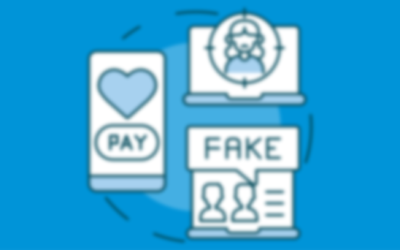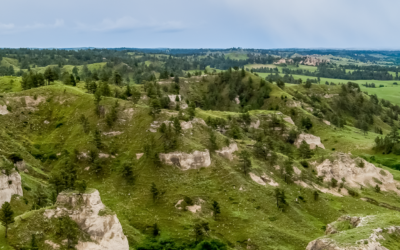 What if the Pandemic Had Hit 20 Years Ago?
What if the Pandemic Had Hit 20 Years Ago?
Remembering the good old days may mean looking back just a few months before March 1, 2020. Many of us may longingly recall being able to travel or going out for dinner and a movie with friends without concern.
Let’s look back a little further. Imagine what it would have been like if this pandemic had hit 20 years earlier when the internet was just catching on with consumers.
Golden West Offered Dial-Up in 1996
Golden West first offered dial-up internet access in 1996 at the blazing speed of about 28.8Kbps or 56Kbps. Connecting involved hearing a series of beeps and screeches and tied up the phone line.
Early in the 2000s, Golden West began deploying Digital Subscriber Lines (DSL) across the service territory. DSL boosted internet speeds to 256Kbps and faster, and kept the phone line open for calls. By the mid-2000s, the focus shifted to fiber optic technology.
Investment in Fiber Optic Technology & Staff
“At Golden West, our strategy to keep up with the demand is to invest in fiber technology and talented people to make it all happen for our customers,” said Nick Rogness, Director of Engineering and Operations.
That investment in fiber infrastructure and the people to manage it has been key to sustaining the increased demand the pandemic has placed on the network. Today, Golden West offers symmetrical internet speed subscriptions of 25Mbps, 50Mbps and 100Mbps.
Even today’s slowest option provides internet speeds almost 900 times faster than that of 1996. As it existed in 2000, the internet would not have allowed us to do many of the things that help us stay productive today while also keeping us safe at home.
How Our Online Options Have Expanded
In the year 2000, the activities below generally involved leaving home and could not be done online like they can be today.
1. Work – Telecommuting has become more commonplace and Work from Home has earned an acronym (WFH). File sharing services and video conferencing developments have been key to improving working from home.
2. Learn – Students today – even those in high school and college – have never known a world without the internet. While they may not all prefer online learning, these students are comfortable with technology and many software options exist today to facilitate online learning.
3. Get Medical Care – Telemedicine has expanded right along with the internet. Services had advanced enough at the start of the pandemic that Medicare began paying for visits furnished via telehealth even from a patient’s place of residence.
4. Staying Informed – The internet has transformed how we get our information. It has also increased the amount of information we can access and the speed with which we get it. In 1996, there were about 250,000 websites total. That’s according to Worldometers’ algorithm. Today there are over 1.5 billion sites online.
5. Be Entertained – We can check out or buy books online and read them digitally or listen to them audibly on handheld devices. Online video entertainment options have exploded with options like watchTVeverywhere, YouTube and numerous streaming services.
6. Connect Socially – Online platforms like Facebook and Instagram and video services such as Zoom or Microsoft Teams enable people to connect over any distance.
7. Apply for Benefits – Those in need can apply online for programs such as Unemployment Benefits, the Supplemental Nutrition Assistance Program and Lifeline.
8. Bank Online – We can check our bank account balance, watch for our federal stimulus check to be direct deposited, deposit our own checks and pay our bills online.
9. Back Up Files – Cloud storage allows for quick and convenient backups of photos and other important files.
10. Buy Products & Services – You don’t have to use Amazon to buy online. Most local businesses communicate with customers online through email, Facebook, websites or mobile apps, and many even take orders.
Thanks to these online options, we can minimize our activities outside the home. This, in turn, helps reduce the spread of the coronavirus. It also keeps us working, learning, connected, informed, supported and entertained.



